Serving 473 students in grades 3-6, Millicoma School ranks in the top 50% of all schools in Oregon for overall test scores (math proficiency is top 50%, and reading proficiency is top 50%).
The percentage of students achieving proficiency in math is 31% (which is equal to the Oregon state average of 31%). The percentage of students achieving proficiency in reading/language arts is 43% (which is lower than the Oregon state average of 44%).
The student:teacher ratio of 20:1 is higher than the Oregon state level of 17:1.
Minority enrollment is 23% of the student body (majority Hispanic), which is lower than the Oregon state average of 42% (majority Hispanic).
Quick Stats (2025)
- Grades: 3-6
- Enrollment: 473 students
- Student:Teacher Ratio: 20:1
- Minority Enrollment: 23%
- Overall Testing Rank: Top 50% in OR
- Math Proficiency: 31% (Top 50%)
- Reading Proficiency: 43% (Btm 50%)
- Science Proficiency: 20-24% (Btm 50%)
- Source: National Center for Education Statistics (NCES), OR Dept. of Education
School Overview
Millicoma School's student population of 473 students has stayed relatively flat over five school years.
The teacher population of 24 teachers has stayed relatively flat over five school years.
Grades Offered
Grades 3-6
Total Students
473 students
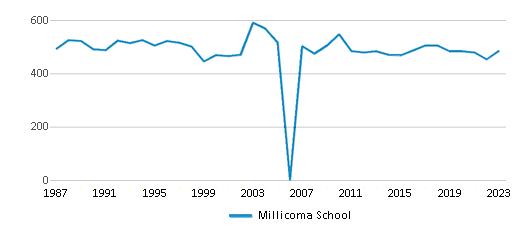
Gender %
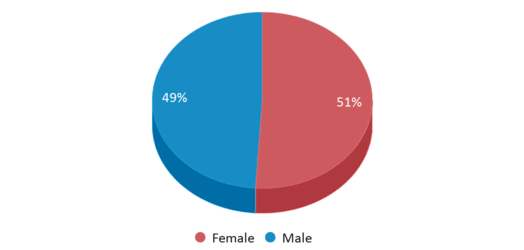
Total Classroom Teachers
24 teachers
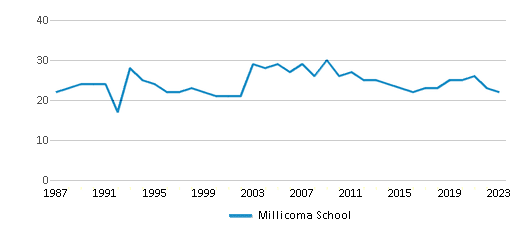
Students by Grade
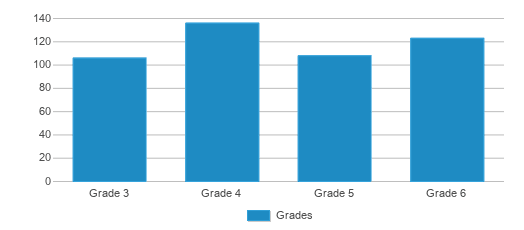
School Rankings
Millicoma School ranks within the top 50% of all 1,196 schools in Oregon (based off of combined math and reading proficiency testing data).
The diversity score of Millicoma School is 0.39, which is less than the diversity score at state average of 0.60. The school's diversity has stayed relatively flat over five school years.
Overall Testing Rank
#592 out of 1196 schools
(Top 50%)
(Top 50%)
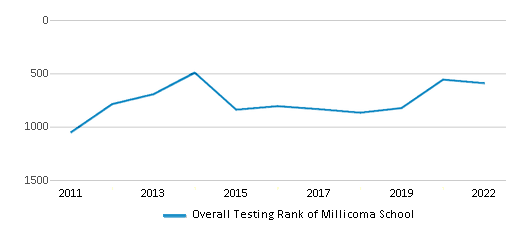
Math Test Scores (% Proficient)
31%
31%
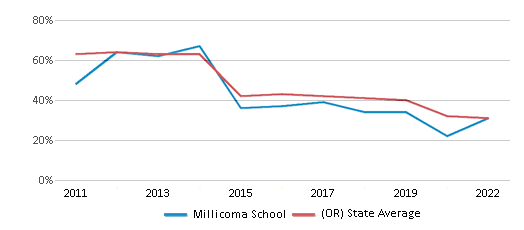
Reading/Language Arts Test Scores (% Proficient)
43%
44%
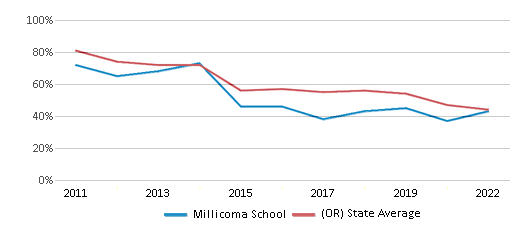
Science Test Scores (% Proficient)
20-24%
30%
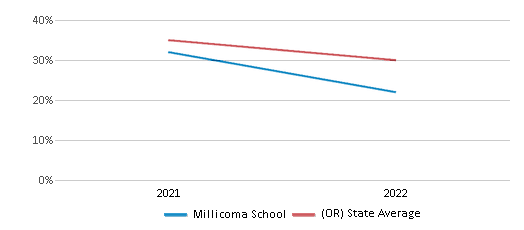
Student : Teacher Ratio
20:1
17:1
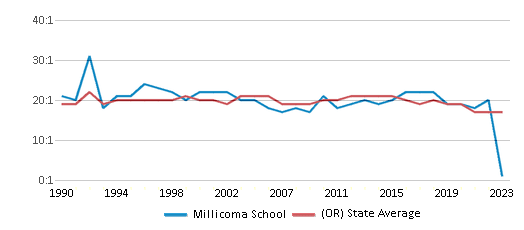
American Indian
3%
1%
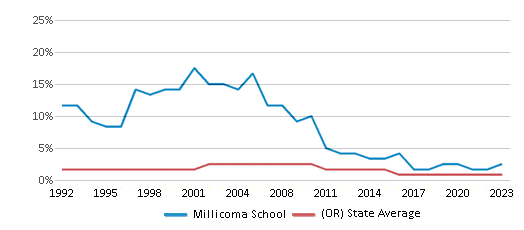
Asian
n/a
4%
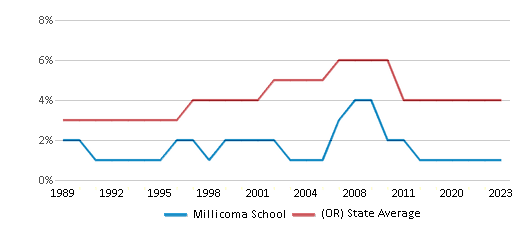
Hispanic
11%
26%
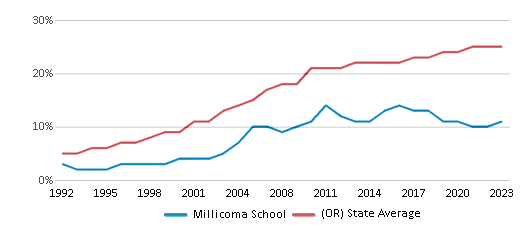
Black
n/a
3%
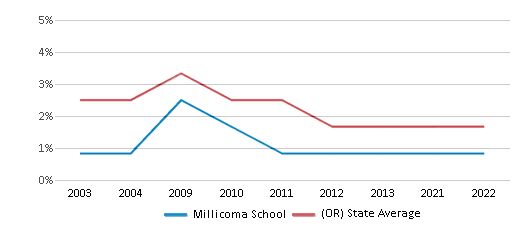
White
77%
58%
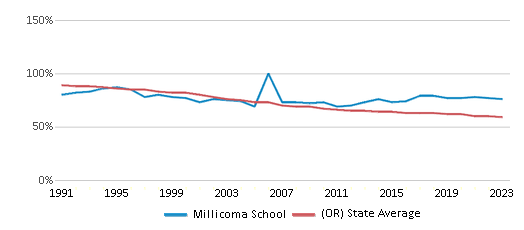
Hawaiian
1%
1%
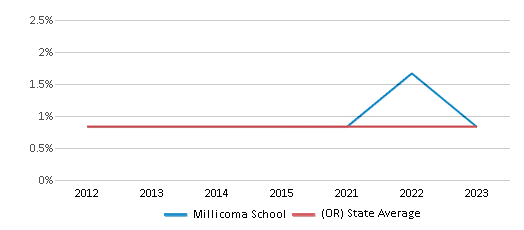
Two or more races
8%
7%
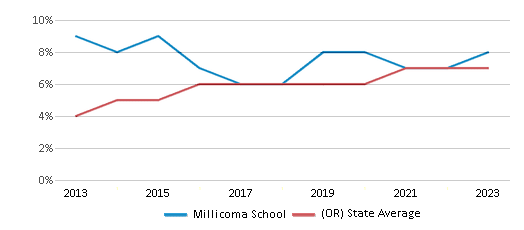
All Ethnic Groups
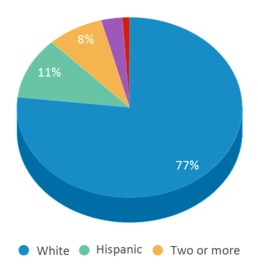
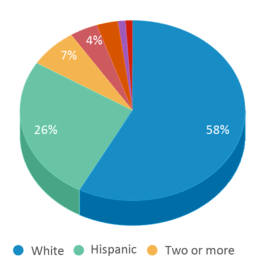
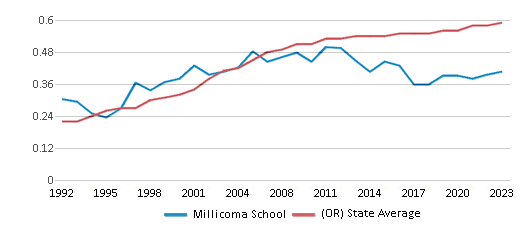
Eligible for Free Lunch
69%
51%
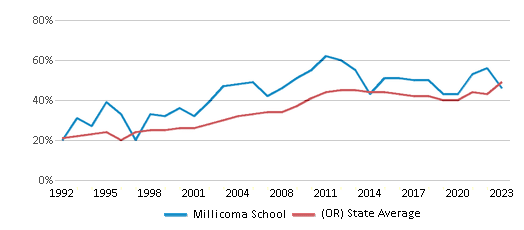
Eligible for Reduced Lunch (21-22)
9%
8%
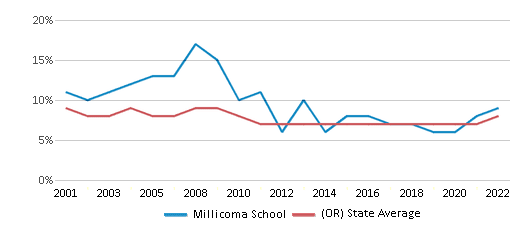
School Statewide Testing
School District Name
Source: National Center for Education Statistics (NCES), OR Dept. of Education
Profile last updated: 02/09/2025
Frequently Asked Questions
What is Millicoma School's ranking?
Millicoma School is ranked #592 out of 1,196 schools, which ranks it among the top 50% of public schools in Oregon.
What schools are Millicoma School often compared to?
Millicoma Schoolis often viewed alongside schools like Sunset School, North Bend Middle School by visitors of our site.
What percent of students have achieved state testing proficiency in math and reading?
31% of students have achieved math proficiency (compared to the 31% OR state average), while 43% of students have achieved reading proficiency (compared to the 44% OR state average).
How many students attend Millicoma School?
473 students attend Millicoma School.
What is the racial composition of the student body?
77% of Millicoma School students are White, 11% of students are Hispanic, 8% of students are Two or more races, 3% of students are American Indian, and 1% of students are Hawaiian.
What is the student:teacher ratio of Millicoma School?
Millicoma School has a student ration of 20:1, which is higher than the Oregon state average of 17:1.
What grades does Millicoma School offer ?
Millicoma School offers enrollment in grades 3-6
What school district is Millicoma School part of?
Millicoma School is part of Coos Bay SD 9 School District.
School Reviews
Review Millicoma School. Reviews should be a few sentences in length. Please include any comments on:
- Quality of academic programs, teachers, and facilities
- Availability of music, art, sports and other extracurricular activities
Recent Articles

What Is A Charter School?
Explore the world of charter schools in this comprehensive guide. Learn about their history, how they operate, and the pros and cons of this educational innovation. Discover key facts about charter schools, including admission policies, demographics, and funding, as well as what to look for when considering a charter school for your child.

10 Reasons Why High School Sports Benefit Students
Discover the 10 compelling reasons why high school sports are beneficial for students. This comprehensive article explores how athletics enhance academic performance, foster personal growth, and develop crucial life skills. From improved fitness and time management to leadership development and community representation, learn why participating in high school sports can be a game-changer for students' overall success and well-being.

February 05, 2025
Understanding the U.S. Department of Education: Structure, Impact, and EvolutionWe explore how the Department of Education shapes American education, from its cabinet-level leadership to its impact on millions of students, written for general audiences seeking clarity on this vital institution.





